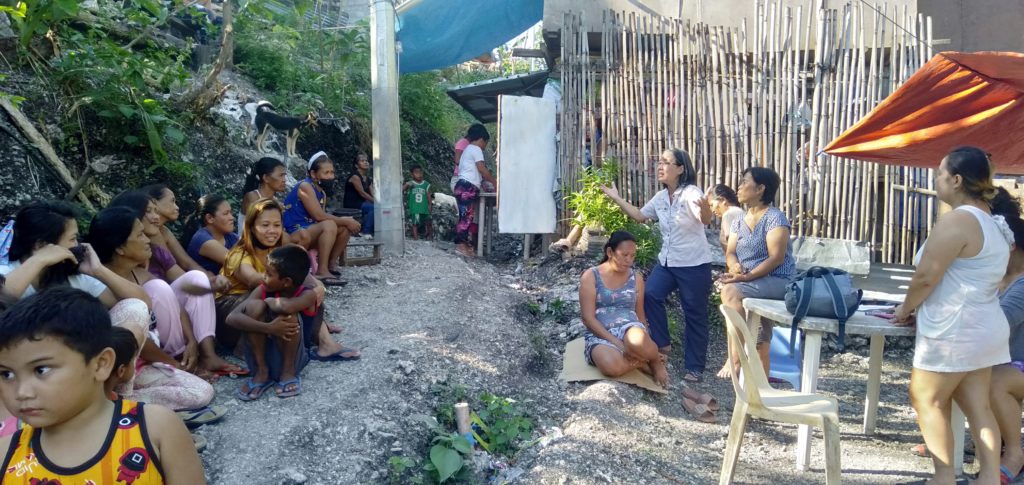As part of the ongoing project of the Visayas Primary Healthcare Services, (VPHCS) Inc. to provide mental health services to families affected by Typhoon Yolanda in the northern part of Cebu, trainings on community resiliency model (CRM) were recently conducted for the VPHCS staff and community health workers in the affected areas in Bantayan.
The project, Integrating Community Resiliency Model (CRM) in Community-based Health Program (CBHP) in ten villages in northern Cebu affected by Typhoon Yolanda is funded by the Unitarian Universalist Service Committee (UUSC), a human rights organization based in Massachusettes, U.S.A. and working in more than a dozen countries worldwide.
The six-month project which started in October 2014, addresses the mental health in the ten communities through application of the CRM so that the residents can help themselves and help others as well.
Trainings on CRM for the VPHCS staff were conducted on October 17 – 19, Nov. 8 -9, 2014, in the Institute of Religion and Culture, Cebu City. Resource persons included three nurses trained on CRM and members of the Philippine Association of Community Resiliency Model Trainers (PhilACTs), Edgar Gahisan, Lord Sidney Relon and Irish Grace Ramirez, and UUSC consultant Rainera Lucero.
The trainers then gave community-based trainings on CRM to community health workers of the ten barangays. The first trainings were held in Patao in Bantayan on Nov. 29 – Dec. 1, and Kampinganon in Bantayan, and San Agustin in Madridejos on Dec. 2 – 4.
Ten CHWs in each barangay attended the trainings which were conducted by Irish Grace Ramirez, Pearl Templado, Tardy Guardiario, and Lucila Carrreon of the VPHCS.
“Community Resiliency Model (CRM) of the Trauma Resource Institute embodies a community-oriented approach that promotes independence, education about the biology of the human body and how it responds to traumatic events and most importantly, how to restore or enhance resiliency. It trains community members to not only help themselves but to help others within their wider social network. CRM aims to “make the skills a part of healing in daily life, to increase a sense of one’s ability to help him/herself, to learn how to bring the body, mind and spirit into greater balance and to encourage people to pass the skills along to friends and loved ones.”
“The primary focus of this skills-based, stabilization program is to re-set the natural balance of the nervous system. CRM skills help individuals understand their nervous system and learn to track sensations connected to their own well-being, which CRM calls the “Resilient Zone”. CRM’s goal is to help to create “trauma-informed” and “resiliency-informed” communities that share a common understanding of the impact of trauma and chronic stress on the nervous system and how resiliency can be restored or increased using this skills-based approach.
“CRM has largely been used with individuals and communities, which have been marginalized either by economic challenges, ethnicity or specific events. Applying CRM proactively with an entire community or neighborhood that is chronically stressed can alleviate the symptoms of chronic stress placing the community and its members in a better position to change their situation by increasing their resiliency.”
In the trainings of the community health workers, the participants said that Community Resiliency Model helped them in recovering themselves from the Yolanda experience, making them able to control themselves when they are out of their resilient zone.
Other communities in future trainings to be conducted include Barangay Lipayran, Municipality of Bantayan, Barangays Baterya, Malbago and Tominhao in the Municipality of Daanbantayan, Barangay North Poblacion, Municipality of San Francisco, Barangay Cagcagan, Municipality of Puro and Barangay Puertobello, Municipality of Tudela.



